The amendment of the Party Charter needs to be studied and implemented fundamentally, including aspects of organization and operating mechanism, as well as "open mechanism"; the guiding documents for implementation must adhere closely to the core contents stipulated in the Charter, avoiding arbitrariness in implementation.
Limitations in the implementation of the Party Charter have been pointed out.
Limitations, difficulties, and inadequacies in organizational principles (page 10 of the report) : the concretization of the principle of democratic centralism is still scattered in many documents and is not systematic, therefore, the awareness of the principle of democratic centralism is not unified and not complete. Some Party committees and organizations have not strictly implemented the principle of democratic centralism, limited debate and discussion in Party activities, and in some places, there are even serious violations...; the construction of working regulations in some Party committees and organizations has not focused on content and principles, and has not concretized tasks and authority close to localities, agencies, and units; some places are slow to promulgate, and the quality of regulations is not guaranteed; some places have not seriously implemented working regulations.
Limitations, difficulties and inadequacies in the Party's leadership bodies at the local level (page 12 of the report): the implementation of tasks and powers of the Standing Committee of the Party Committee, especially the working relationship between the Party Committee Secretary and the Chairman of the People's Committee in some places is still confusing.

The reasons have also been clearly pointed out (page 24 of the report): some Party committees, Party organizations and Party members do not fully understand the meaning and importance of the Party Charter; some Party committee members and Party members have not strictly complied with the Party Charter, have violated the principle of democratic centralism and the principles of Party organization and operation, and have violated working regulations... Some contents in the Party Charter, regulations and instructions are still inadequate, do not cover all subjects and are not synchronous, and the concretization of some regulations is not timely.
The above shortcomings and limitations show that the core of the problem lies in:... not strictly implementing the principle of democratic centralism; limiting debate and discussion in party activities, even in some places seriously violating. Slow promulgation and quality of regulations; not seriously implementing working regulations; working relationship between Party Secretary and Chairman of People's Committee.
Correct understanding of the role and leadership methods of the Party
To overcome the above shortcomings and limitations, in my opinion, it is necessary to amend the Party Charter fundamentally and completely; the Party Charter must be an internal legal document, binding in terms of discipline and ideology for Party members. I would like to discuss and propose as follows:
Studying the current Party Charter (issued in 2011), with 12 chapters and 48 articles, the main content is about the Party organization and Party members, while the activities of the Party, organizations and Party committees at all levels are not specifically regulated, but are regulated in the working regulations of each Party committee and each Party committee. That, in reality, leads to arbitrariness in some Party committees at all levels and in some localities. The situation of Party committees/standing committees/permanent committees covering up, replacing the government or omitting the leadership role of the Party in some areas is still common. As General Secretary To Lam pointed out: the Party's organizational model and political system still have shortcomings, making the boundary between leadership and management difficult to distinguish, easily leading to covering up, replacing or loosening the leadership role of the Party ( in the special topic on the New Era by General Secretary To Lam ) .
The underlying cause is the incorrect understanding of the Party's role and leadership methods: The Party leads the State, the Fatherland Front and socio-political organizations through the Political Platform, strategies, policies and guidelines; through ideological work, organization, cadres and inspection and supervision of implementation (Clause 1, Article 41, Chapter IX, Party Charter) .
Comprehensive leadership of the Party does not mean that the Party does all the work of other entities. Somewhere, the Party organization decides everything, which will make the government become a formality; this is also the reason why the working relationship between the Party Secretary and the Chairman of the People's Committee lacks clarity and transparency, even leading to conflicts in work. It is because the Party Charter does not specifically stipulate the operating mechanism of the Party organization, the Party Committee, the Standing Committee, and the Standing Committee of the Party Committee that leads to that situation.
On the other hand, the Party Charter stipulates: Party organizations and party members... must strictly comply with the Party's resolutions and directives; Party organizations lead the concretization into legal documents of the State and policies of mass organizations.
Is there a lack of a mechanism of democratic centralism here? Suppose when the Party's resolutions and Party committees are institutionalized into legal documents, can state agencies and mass organizations propose (refute) proposals that differ from the Party committee's resolutions for reconsideration? If all Party organizations and Party members must strictly comply with the Party's resolutions, there will be no violation of the Charter, but when there are different opinions, it will fall into a situation of non-compliance with the resolutions. This is also the reality and the difficulties in implementing the Party's Charter.
General Secretary To Lam requested: " ... Ensure that the Party's leadership tasks do not overlap with management tasks; distinguish and clearly define the specific tasks of leaders at all levels in different types of Party organizations, avoid the situation of making excuses or having duplication or formality..." (first orientation, in the topic on the New Era).
C allows for piloting, evaluating, and drawing lessons
Amending the Party Charter, in the direction that the charter's structure should be separated into two parts: One part, including "internal" regulations within the Party, are regulations for Party organizations and Party members. One part specifically and detailedly stipulates principles on the operating mechanism, so that Party committees at all levels must comply with and follow the role and leadership methods of the Party; resolutions of Party committees (standing committees, executive committees) are limited to major policies and orientations, while specific issues - the "work" that State agencies and organizations in the political system are responsible for specifying and implementing according to Party committee resolutions and legal regulations.
Under current conditions, reorganizing party organizations in agency blocks at each level is also a favorable condition for management, institutionalization of policies and orientations of Party committees, ensuring the leadership of the party through the role of Party committees in agency blocks at the same administrative level.
Along with that, there needs to be an "open mechanism" , stipulated in the Party Charter, so that when the government discusses and concretizes the Party Committee's policy and there are opinions that differ from the Party Committee's resolution, they must be reflected and the Party Committee must receive, consider, and adjust the resolution accordingly (this mechanism has not been implemented, because there are no regulations in the Charter). Only then can centralization and democracy in both directions be truly ensured.
While continuing to research to propose amendments to the Party Charter at the 15th Congress, the Politburo can study and allow piloting, evaluating, and drawing experience on some new issues so that the amendments to the Charter have a scientific and practical basis.
Source: https://daibieunhandan.vn/gop-y-du-thao-van-kien-dai-hoi-xiv-cua-dang-dieu-le-dang-can-duoc-sua-doi-can-co-ca-ve-to-chuc-va-co-che-hoat-dong-10394765.html







![[Photo] Da Nang: Hundreds of people join hands to clean up a vital tourist route after storm No. 13](https://vphoto.vietnam.vn/thumb/1200x675/vietnam/resource/IMAGE/2025/11/07/1762491638903_image-3-1353-jpg.webp)


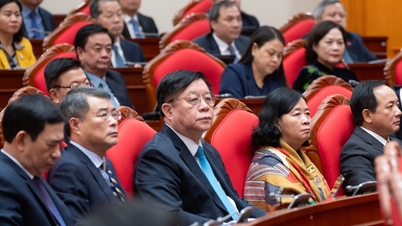

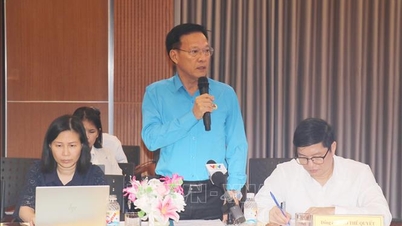

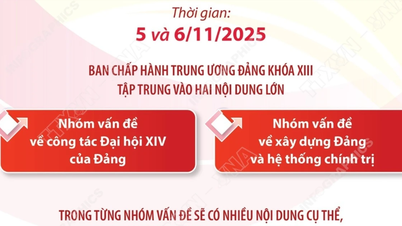
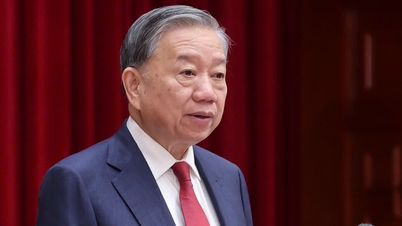



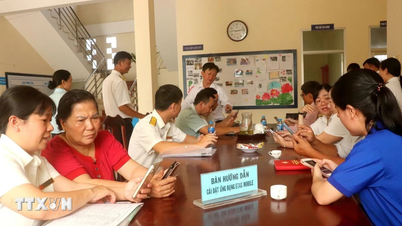

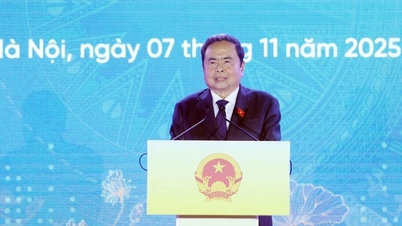






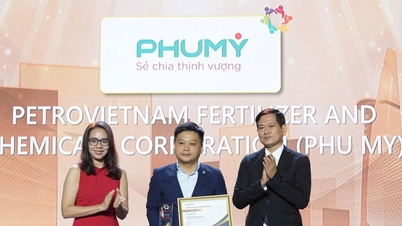


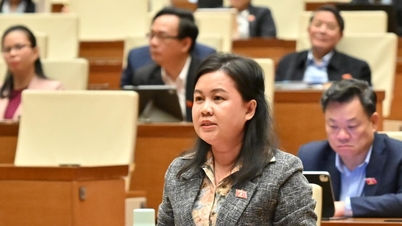

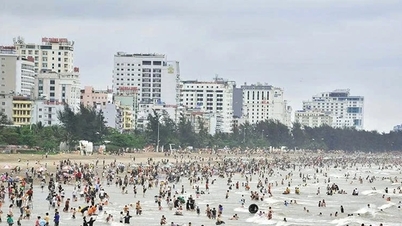





















































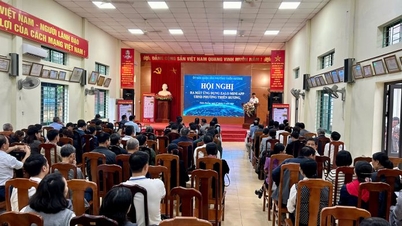





















Comment (0)